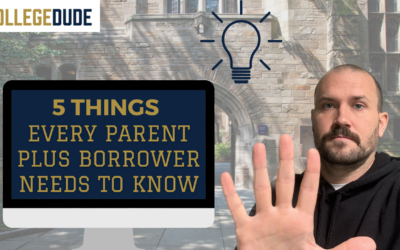Paying for college for one or multiple children can be very costly. Making mistakes while doing so, or not properly understanding the process can make it worse. School choice, saving for college, financial aid, and loans are most commonly thought of as the ways to pay for college. But what about tax savings? An overlooked category of college planning is the tax planning that can come with it. By having proper tax knowledge for your college-bound child, you can save on taxes which can help drive down your net cost of college.
Maximize Financial Aid
The best way to save and pay for college is to do it with other people’s money. Maximizing scholarships and grants will help best accomplish that. Loan forgiveness is another source of other people’s money that you can leverage. But how do you best qualify for financial aid? One of the two main ways is for the student to excel – in the classroom, on the field, and in activities. Another way to best maximize aid is to qualify for need-based aid.
To be clear, not everyone will qualify. I often hear the words: “We make too much to qualify for aid, but not enough to pay for college.” That’s a legitimate concern and I don’t question it. But are there ways to lower your income for financial aid purposes?
The short answer is yes. By understanding which sources of income are reportable on the Free Application for Federal Student Aid and CSS Profile, it could increase your chances to receive additional aid.
Understanding Tax Credits
Tax credits are not necessarily other people’s money, but it’s as close as you’ll find. To qualify for one of the two major federal educational tax credits, you’ll need to a) qualify and b) pay after-tax dollars toward schooling. The two major credits are the American Opportunity Tax Credit, and the Lifetime Learning Credit. These credits are worth adding to your tax knowledge for your college-bound child.
Both credits have income requirements, phase-outs, and some details in which you need to be aware of, but both can be utilized for schooling. The benefit of a credit as opposed to a deduction is that a credit is funds you get back when you file. So far example, a deduction of $1,000 lowers my taxable income by $1,000. If I’m in the 22% tax bracket, it saves me $220. That’s a good benefit! But a tax credit of $1,000 means that when I file my taxes, it lowers the amount I have to pay in taxes, or could increase my return of $1,000. That’s a GREAT benefit!
I’ll cover more detail with these tax credits in future posts, but planning to qualify for these credits is a huge lift for middle class families.
Tax Deductions & Tax-Deferred Growth
Another area of tax planning centers around your savings. Deductions are an important piece of tax knowledge for your college-bound child. Many accounts are “after-tax” accounts (otherwise known as non-qualified accounts). Things like a savings account, money market, or brokerage account are common examples. But many accounts have a great benefit know as tax-deferred growth. Tax deferred growth allows an account to earn interest without having to pay tax on capital gains or dividends.
When it comes to paying for higher education, there are quite a few options available for tax-deferred savings. The most common (and most commonly-known) is a 529 plan. These types of plans can allow you to defer the tax of the growth to a later date, much like a 401(k) or Roth IRA would.
Even better, is that for some states, you can get a state tax deduction on any contribution you make to a 529 plan, meaning you save on income tax you’d otherwise have to account for. For example, in Pennsylvania, state income tax is a flat 3.07%. If I make $100,000, I must pay $3,070 to the state. But if I make a contribution of $10,000 to a 529 plan, that income is now only $90,000, thus saving me $307 in state tax. Not bad!
Conclusion
There are many reasons why you want to lower taxes. I’ve never met anyone who wants to pay more in tax. Therefore, focusing on the ways in which you can save on taxes should be a top priority. Luckily, we have ways in which we can minimize our tax liability while paying for college. My hope is that you can work with an advisor who can help you save on taxes and college. I do believe every family should have a basic tax knowledge for your college-bound child. As Supreme Court Justice Learned Hand once said: “In America, there are two tax systems: one for the informed and one for the uninformed. Both are legal.”






